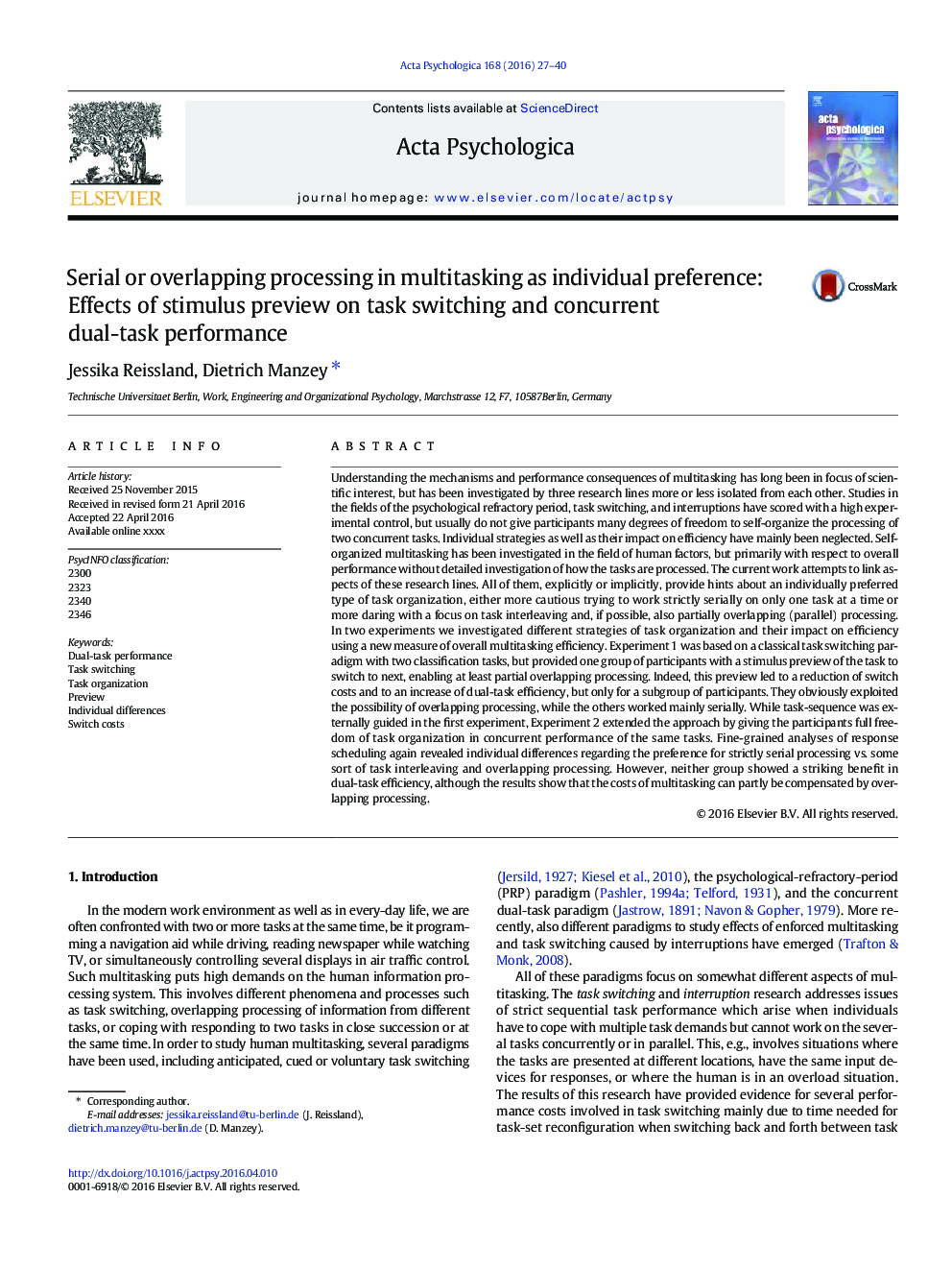| Article ID | Journal | Published Year | Pages | File Type |
|---|---|---|---|---|
| 7277046 | Acta Psychologica | 2016 | 14 Pages |
Abstract
Understanding the mechanisms and performance consequences of multitasking has long been in focus of scientific interest, but has been investigated by three research lines more or less isolated from each other. Studies in the fields of the psychological refractory period, task switching, and interruptions have scored with a high experimental control, but usually do not give participants many degrees of freedom to self-organize the processing of two concurrent tasks. Individual strategies as well as their impact on efficiency have mainly been neglected. Self-organized multitasking has been investigated in the field of human factors, but primarily with respect to overall performance without detailed investigation of how the tasks are processed. The current work attempts to link aspects of these research lines. All of them, explicitly or implicitly, provide hints about an individually preferred type of task organization, either more cautious trying to work strictly serially on only one task at a time or more daring with a focus on task interleaving and, if possible, also partially overlapping (parallel) processing. In two experiments we investigated different strategies of task organization and their impact on efficiency using a new measure of overall multitasking efficiency. Experiment 1 was based on a classical task switching paradigm with two classification tasks, but provided one group of participants with a stimulus preview of the task to switch to next, enabling at least partial overlapping processing. Indeed, this preview led to a reduction of switch costs and to an increase of dual-task efficiency, but only for a subgroup of participants. They obviously exploited the possibility of overlapping processing, while the others worked mainly serially. While task-sequence was externally guided in the first experiment, Experiment 2 extended the approach by giving the participants full freedom of task organization in concurrent performance of the same tasks. Fine-grained analyses of response scheduling again revealed individual differences regarding the preference for strictly serial processing vs. some sort of task interleaving and overlapping processing. However, neither group showed a striking benefit in dual-task efficiency, although the results show that the costs of multitasking can partly be compensated by overlapping processing.
Keywords
Related Topics
Life Sciences
Neuroscience
Cognitive Neuroscience
Authors
Jessika Reissland, Dietrich Manzey,
